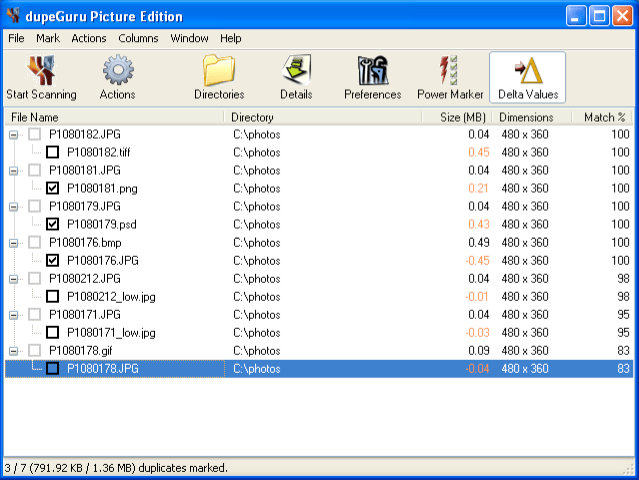
When we are ready we click on the 'Scan' button and let the application carry out its task when it ends we will have the results that will allow us to begin to determine which are the duplicate files.įor example, we will see results marked in blue and directly below them those that correspond and that are duplicates, something that we can also corroborate by looking at the 'Match%' column where the percentage of similarity between the two is shown. We will see before us the main window of dupeGuru, which allows us to select by clicking on the '+' button those folders in which we are going to look for duplicate files.


Once installed dupeGuru We are going to launch it by executing the following command from a terminal (Ctrl + Alt + T): And luckily we can install it very simply in Ubuntu just by adding the Hardcoded Software PPA, which is the one who released it a few days ago so that we can all enjoy it. Is a tool developed in Python and available under the GPLv3 license, which precisely allows us to find duplicate files on all our disk drives. And depending on the size of our disk drives, searching manually can become terribly slow and take up too much time, so it is imperative to find a tool that helps us with it, and dupeGuru is what we need.


Is that the lack of order in the Backups It often means that the same image, music file, document or video can be repeated in several locations, thereby wasting an incredible amount of space. This of course is no longer something that worries us today since the situation has changed radically, but along with abundance it happens that one of the most common problems today is that of have duplicate files in different directories or folders of our units. In not so distant times one of the main problems of users was that of disc space, and that is that the units filled up too quickly if one installed a few games and a few programs.


 0 kommentar(er)
0 kommentar(er)
